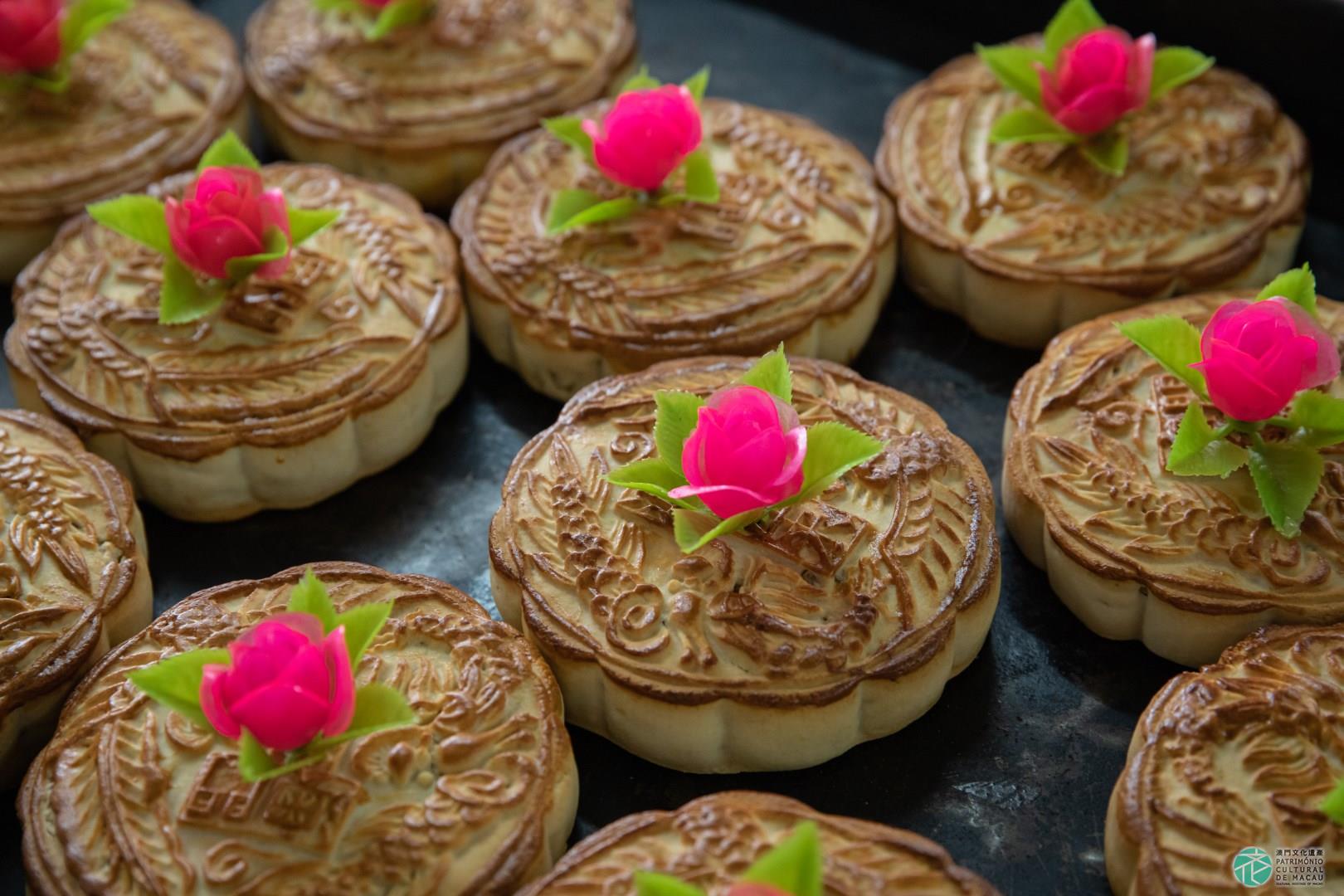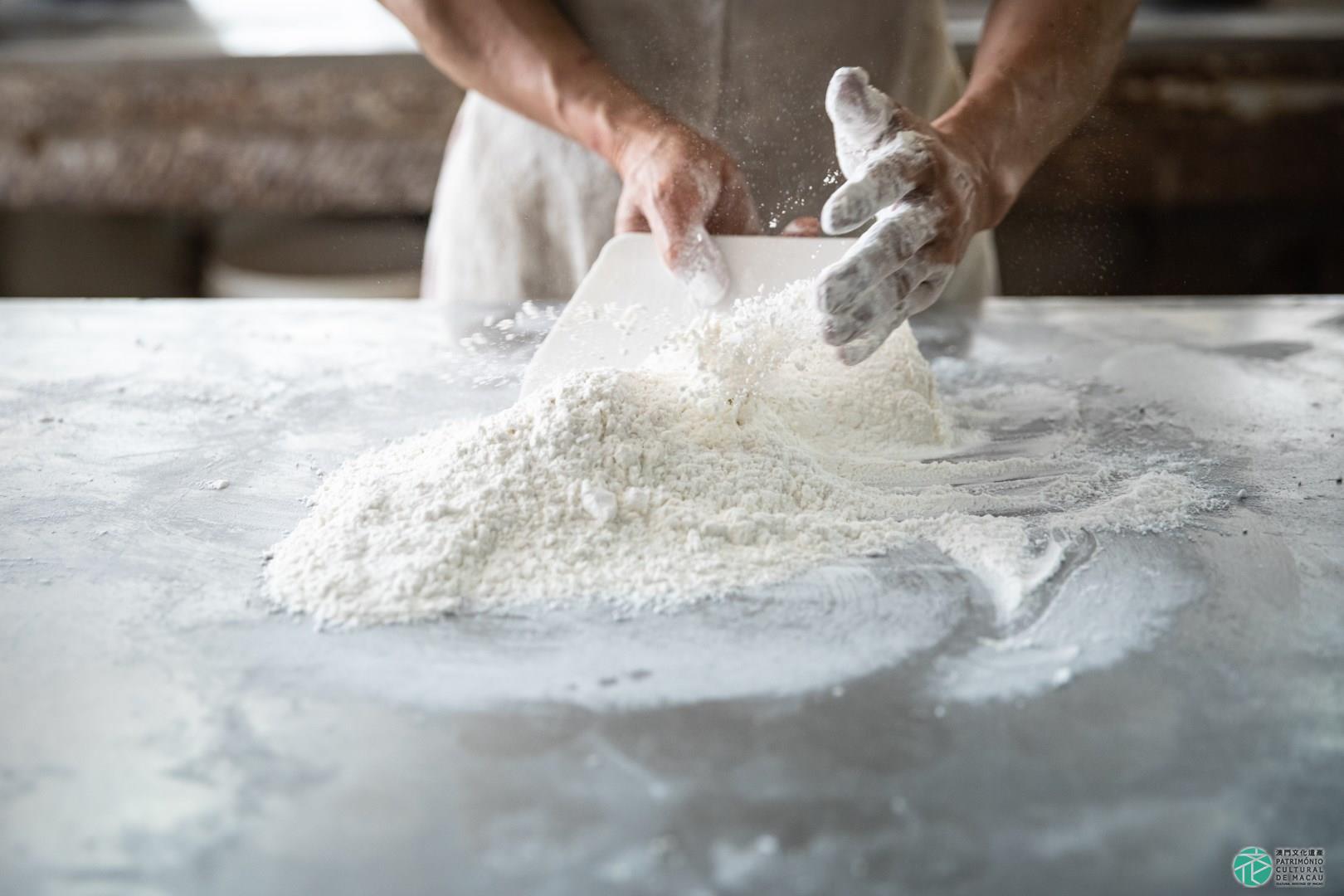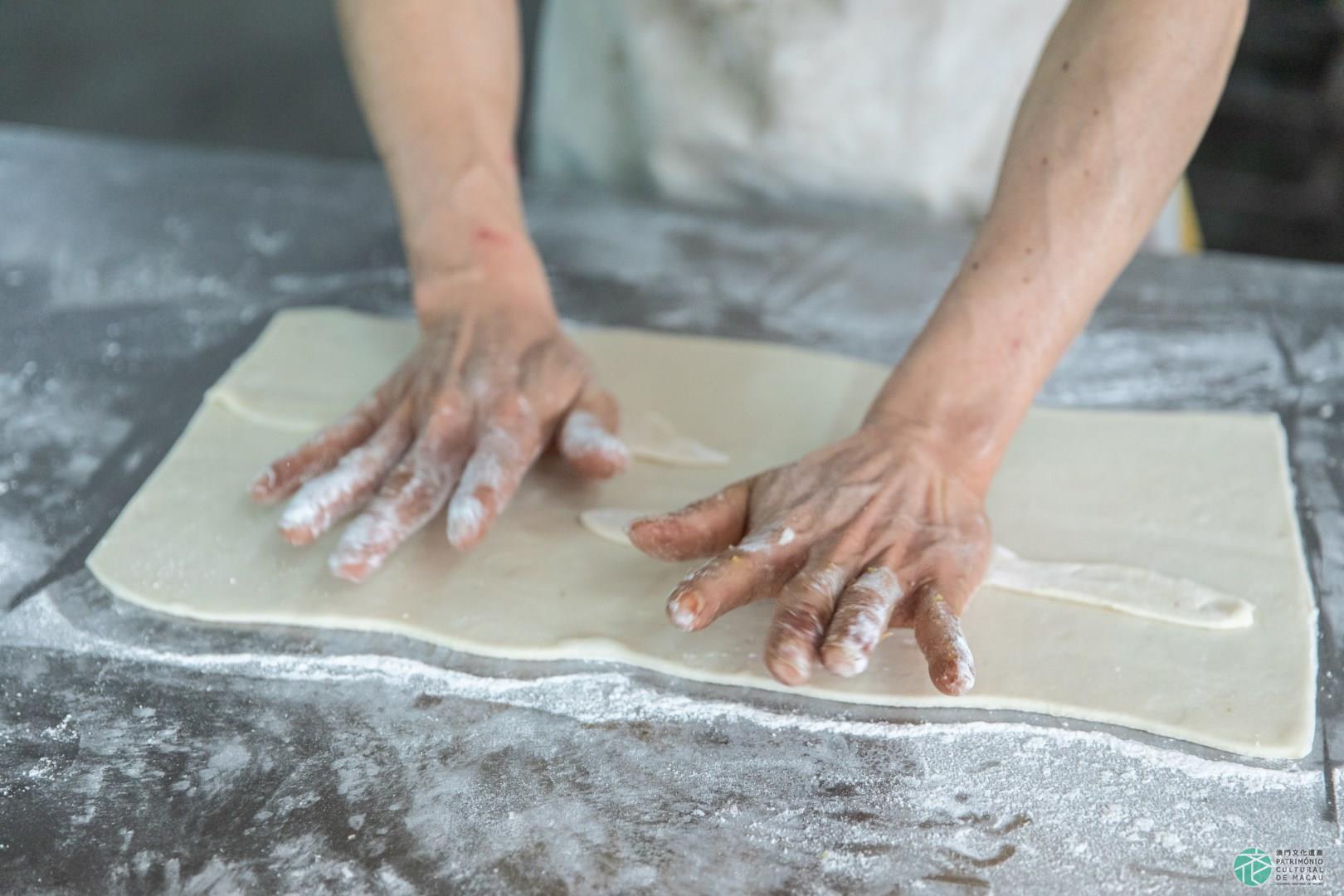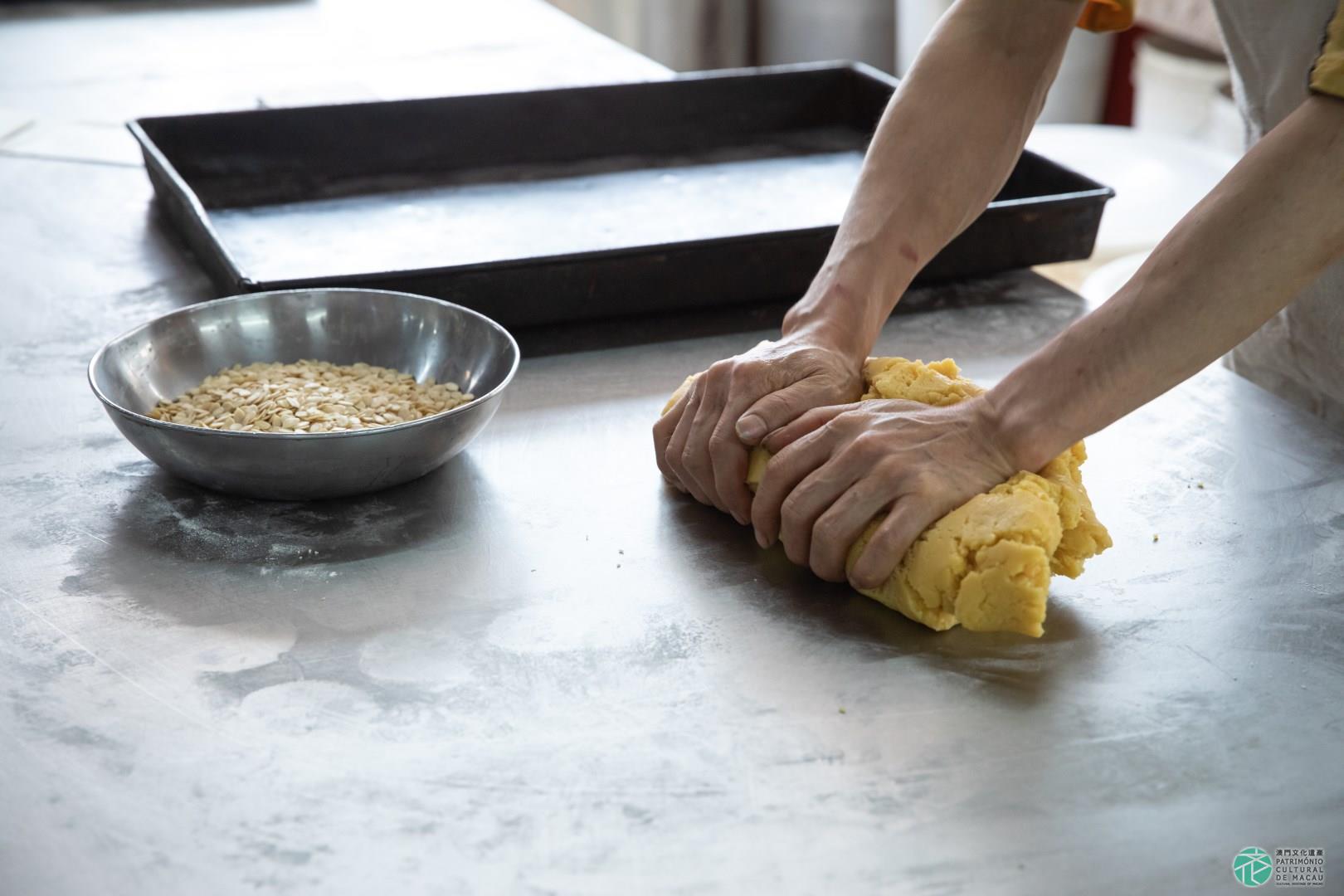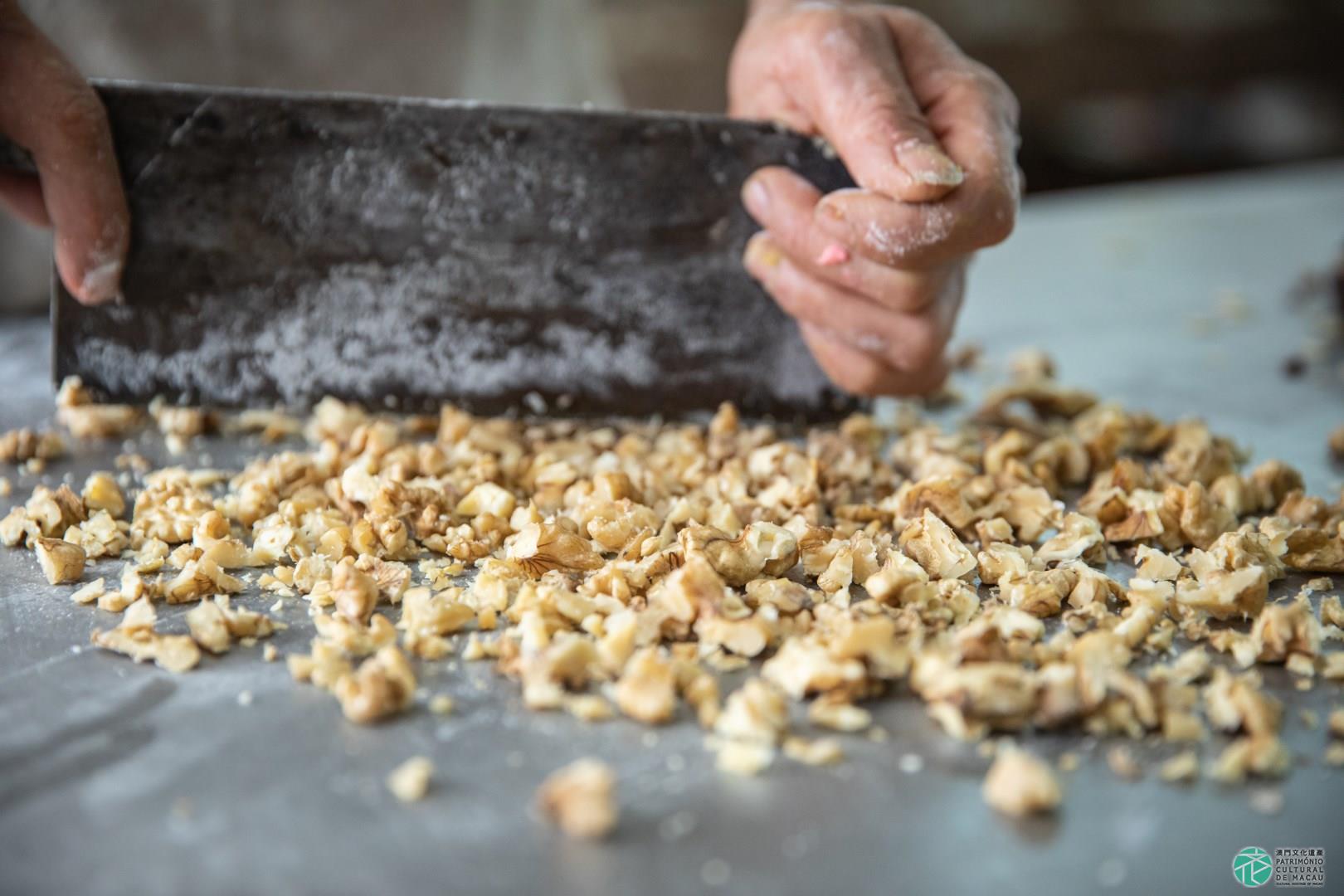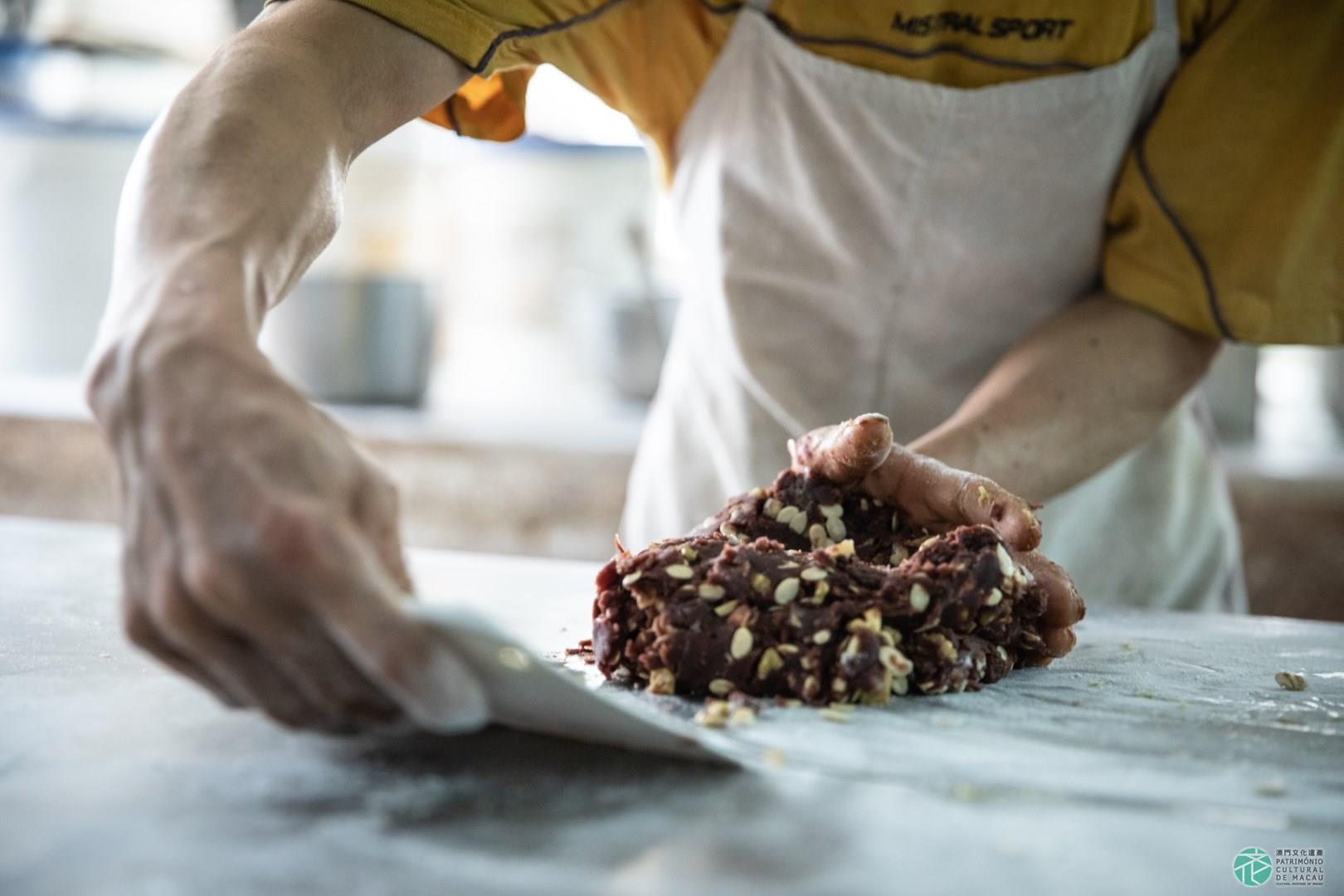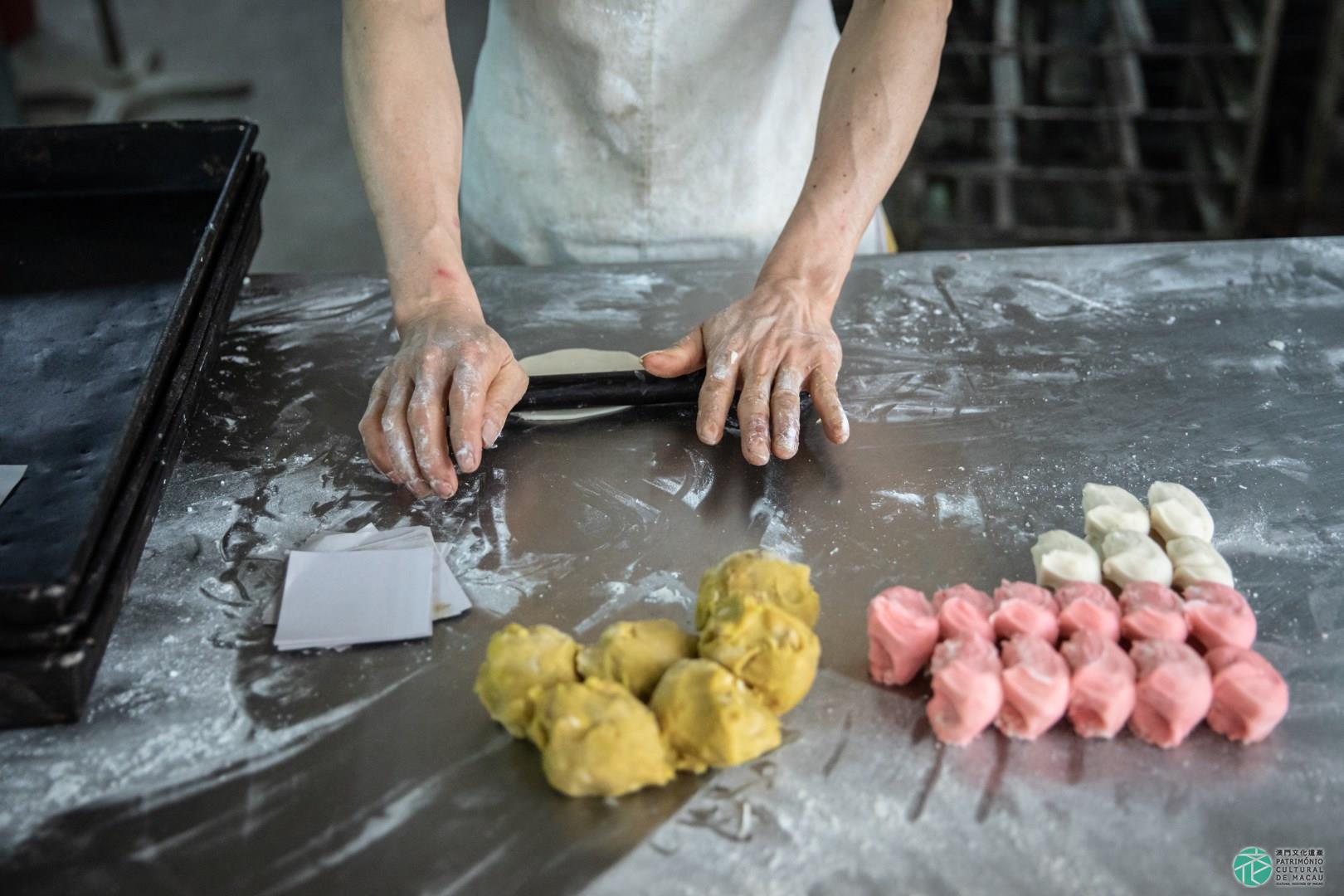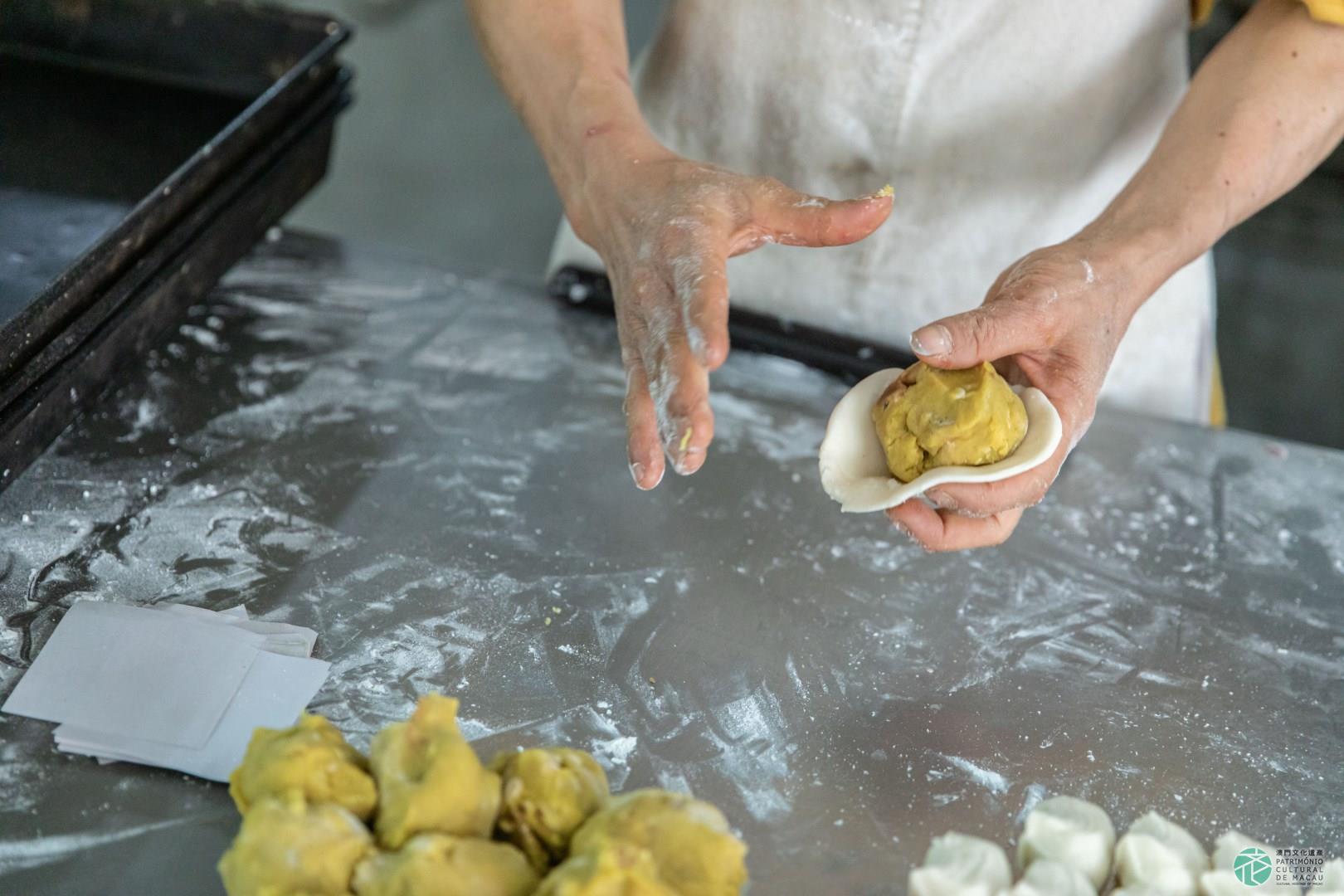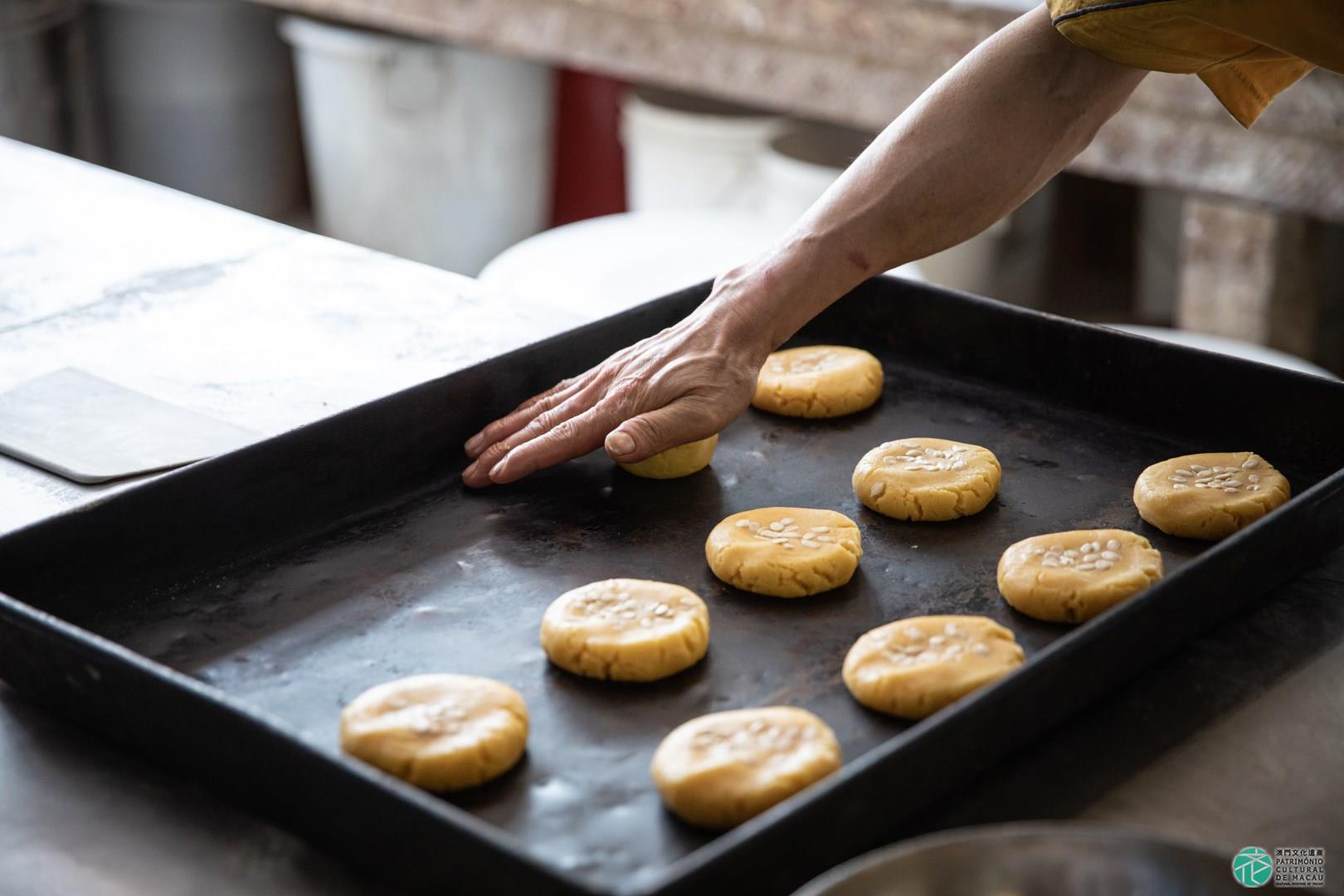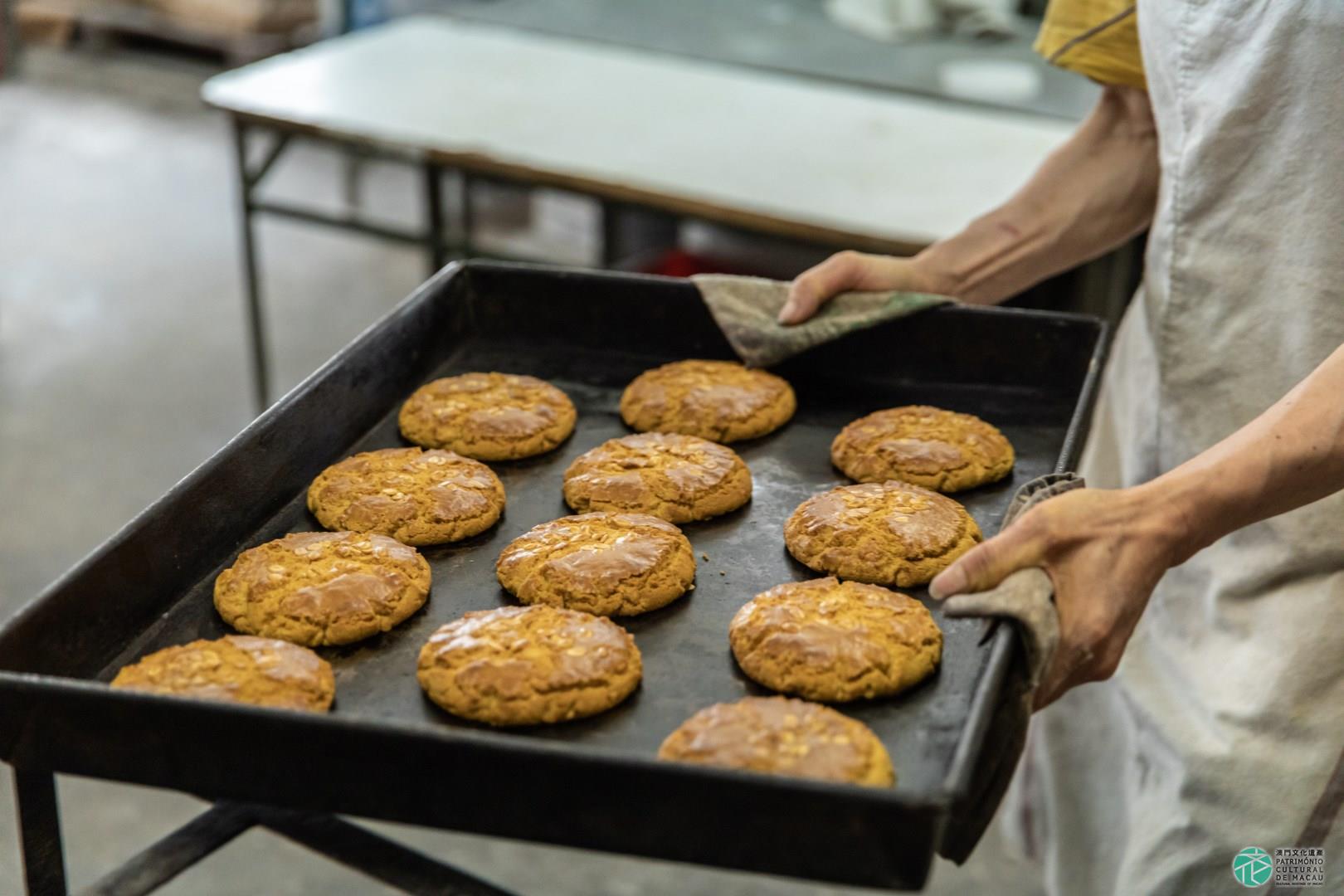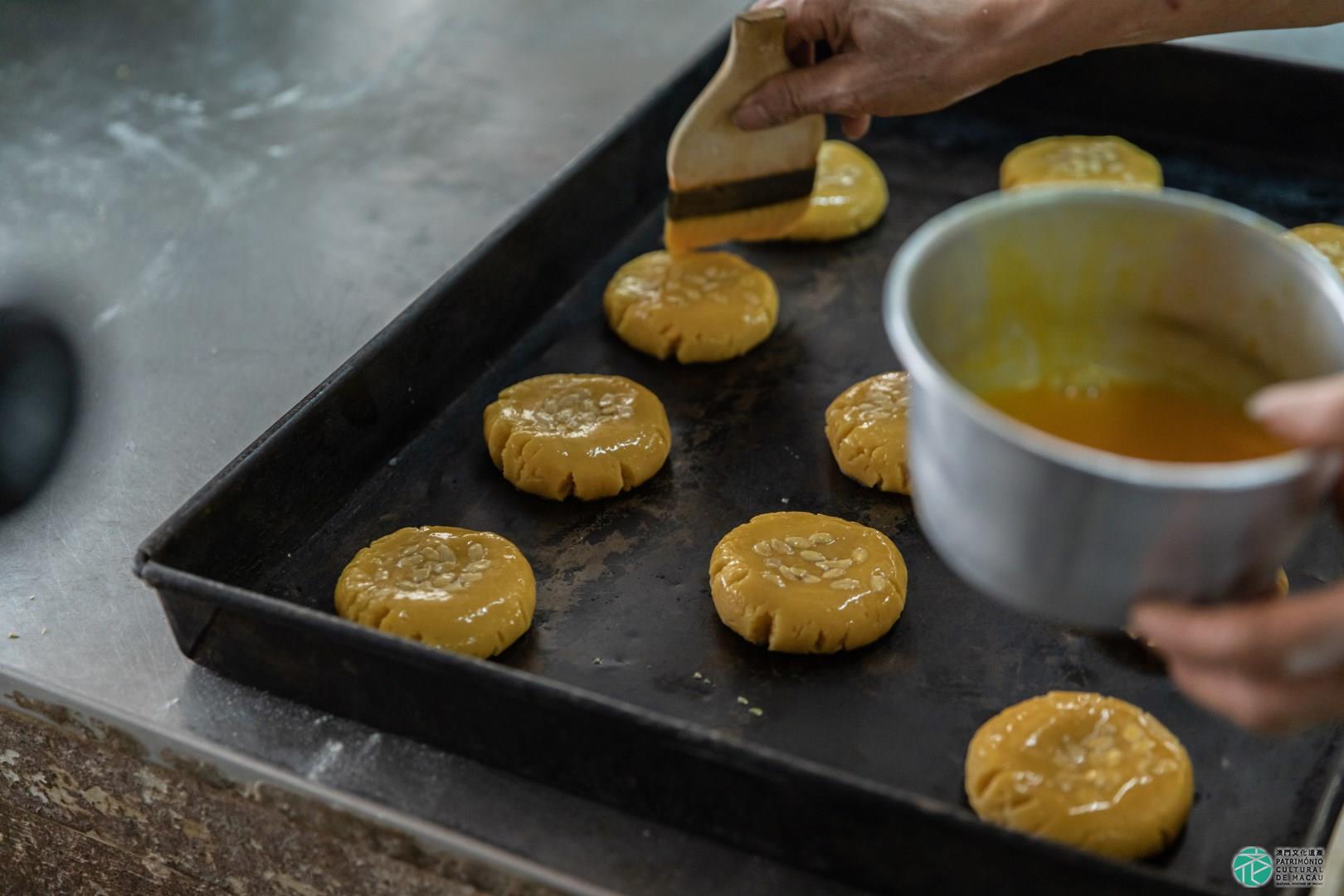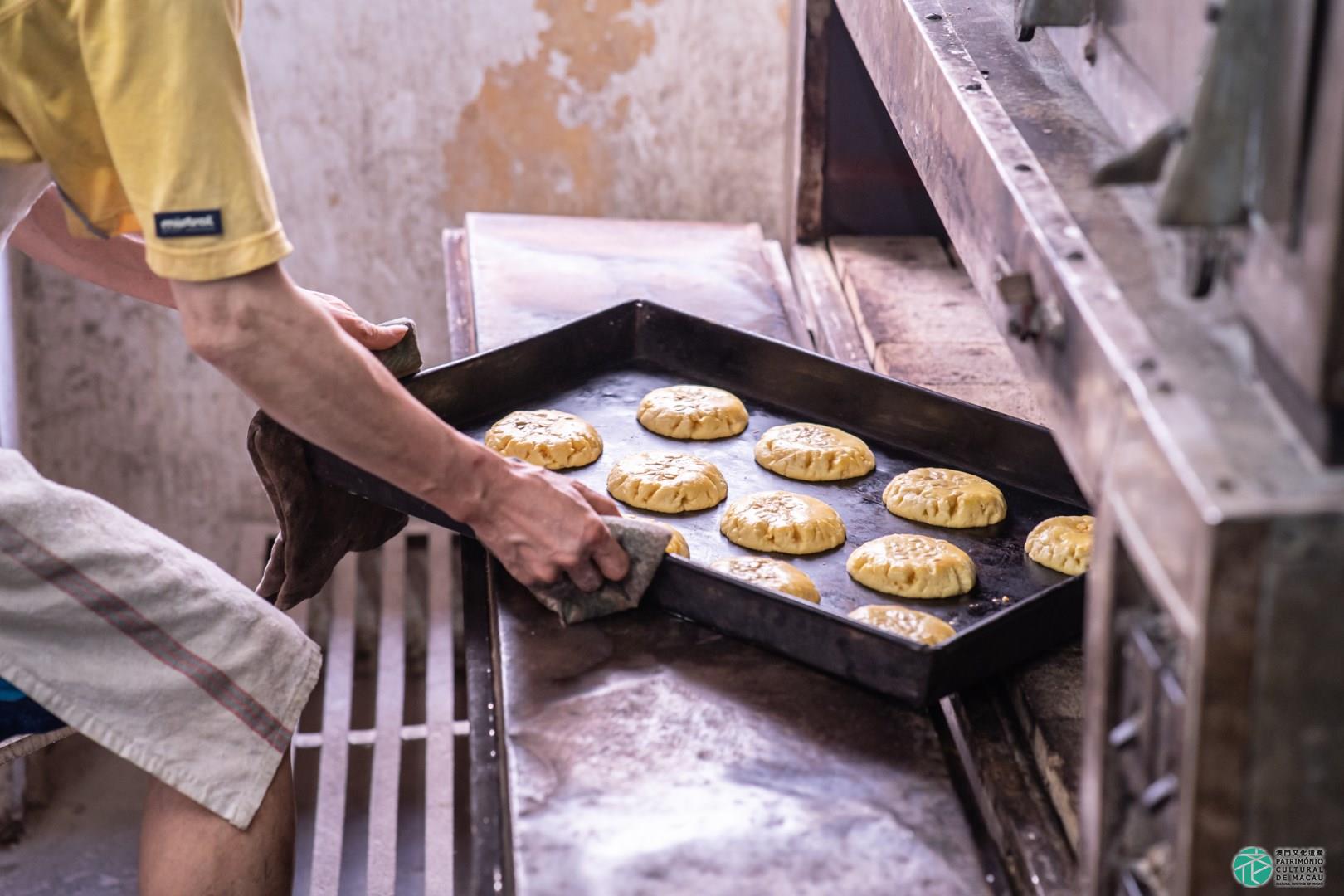Introduction:
Traditional Chinese wedding cakes of Cantonese style, are also known as “dowry cakes”, and they are traditionally presented as wedding gifts, usually being prepared by the family of the groom, with “dragon and phoenix cakes”, “red twill pastries” and “white twill pastries”. “Twills” are meant to represent “expensive cloths”, and therefore, “twill pastries” symbolize prosperity, while the color “red” represents festivity, and the color “white” represents purity. Other traditional wedding cakes that carry auspicious meanings include walnut cookies that symbolize harmony between wife and husband and century egg pastries that represent fertility. Traditional Chinese wedding cakes in the Cantonese style vary in type, and usually follow a series of baking phases, including dough kneading, crust making, preparation of the filling, filling wrapping, weighing, stamping and baking to result in cakes that have rich fillings, that are pleasant in color and with crispy crust and soft filling.
Conservation Status:
Despite the popularity of western-style pastries nowadays, traditional Chinese pastries are still in high demand. In traditional Chinese wedding ceremonies, traditional Chinese wedding cakes are still an integral tradition that is popular with many families, particularly because of their auspicious meanings. Nowadays, there are only a few shops and pastry chefs in Macao that are still making traditional Chinese wedding cakes in the Cantonese style by hand.
Heritage Value:
Traditional Chinese wedding cakes are a characteristic food that is regional and seasonal. The confection of traditional Chinese wedding cakes in the Cantonese style is an important craft that is also representative of the continuity and transmission of Chinese food culture and traditional wedding customs in Macao. The characteristics of these techniques, the different types of traditional wedding cakes, and the history of this industry are also of significant value for the study of local wedding customs and culture.
